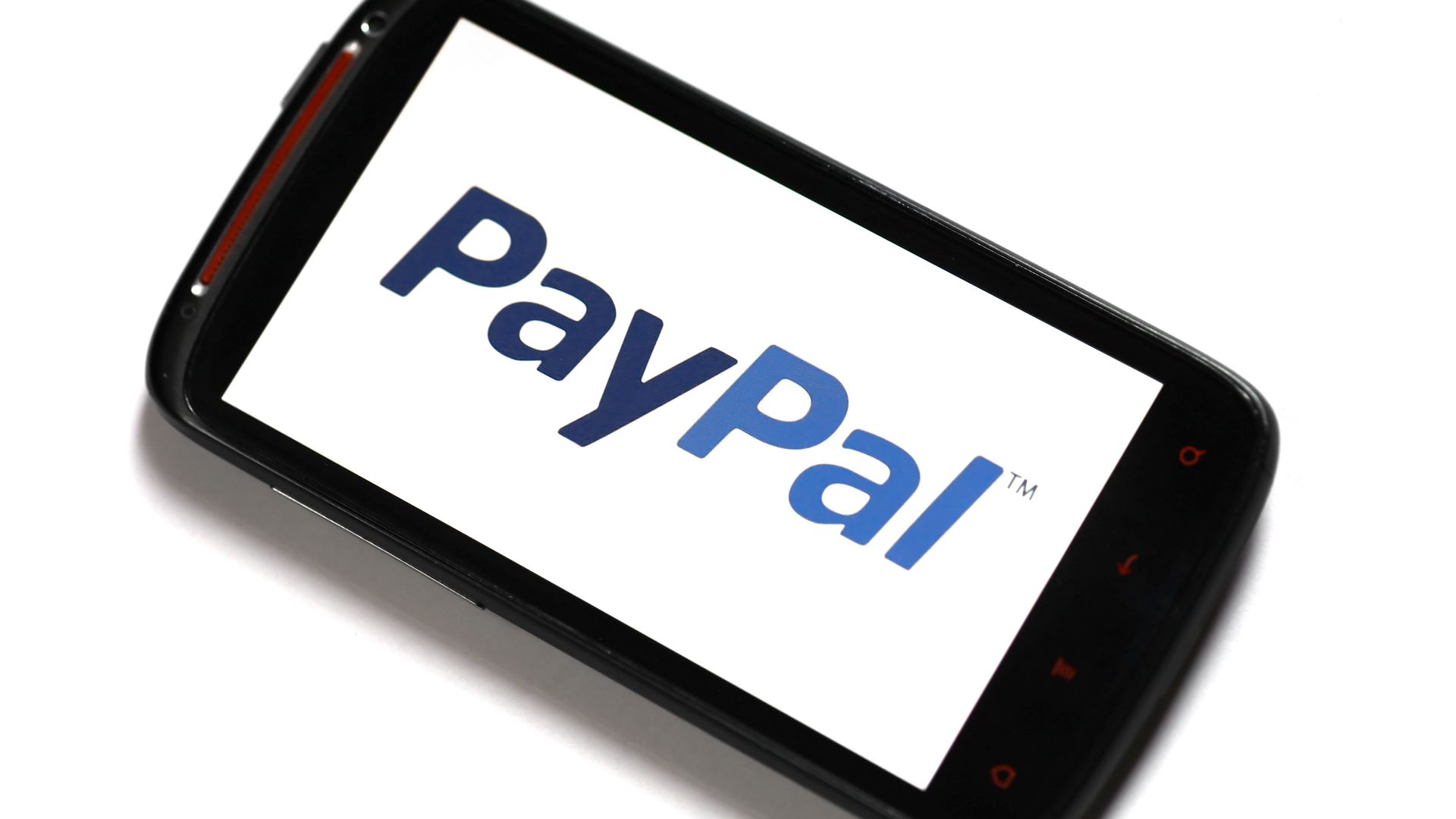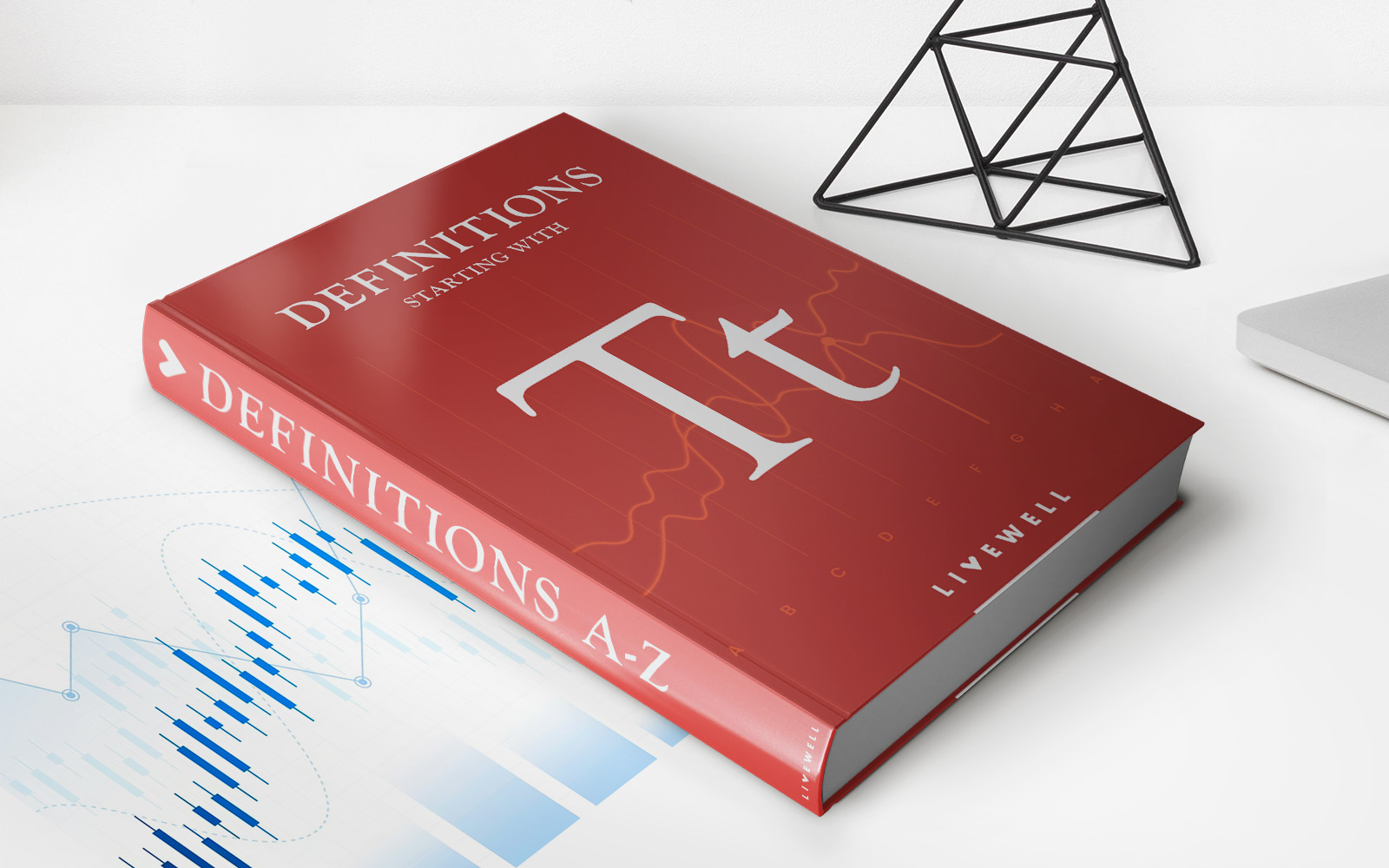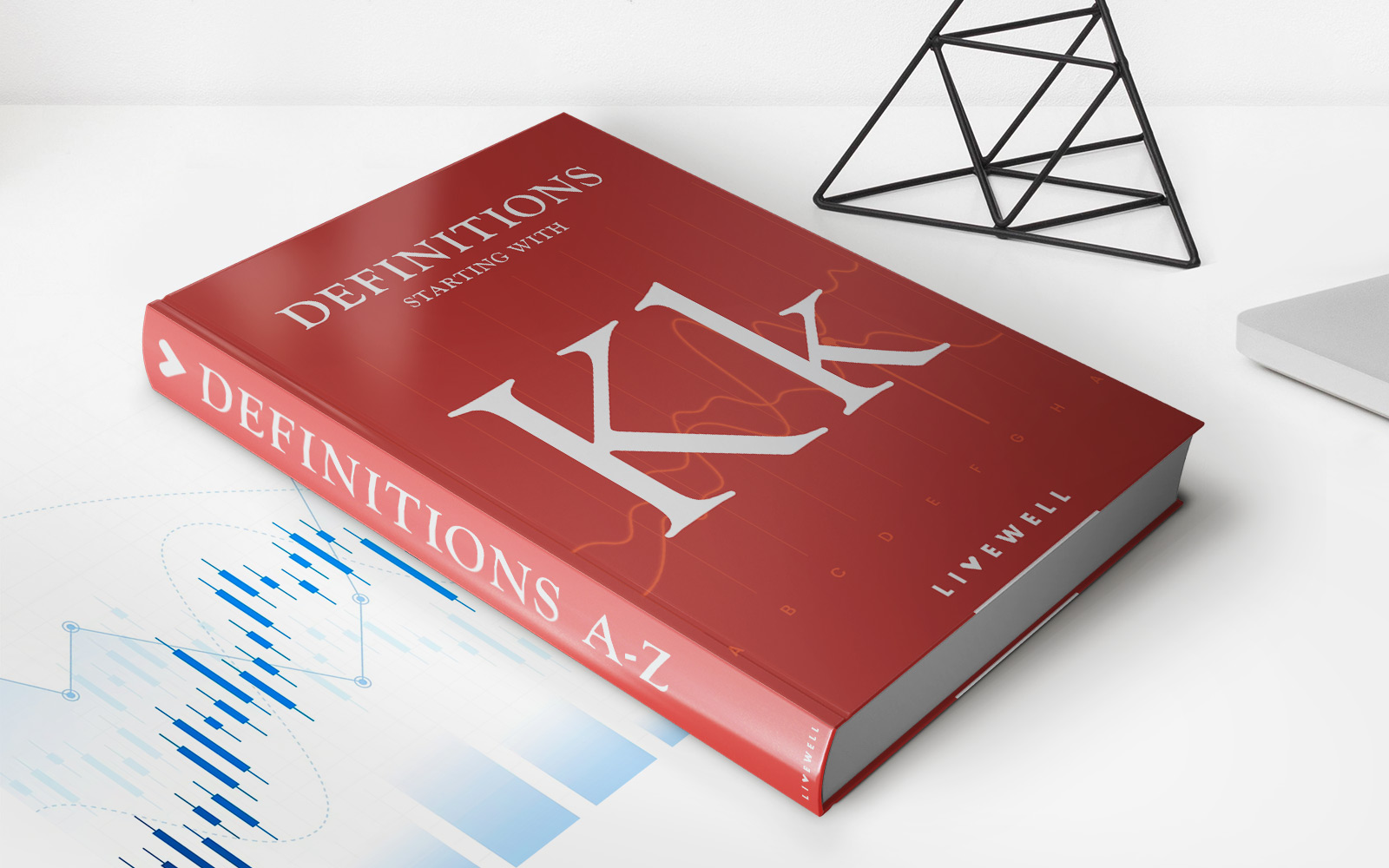Home>Finance>What Is The Impact Of Paying Only The Minimum Payment


Finance
What Is The Impact Of Paying Only The Minimum Payment
Published: February 25, 2024
Learn about the impact of paying only the minimum payment on your finances. Understand the consequences and take control of your financial situation.
(Many of the links in this article redirect to a specific reviewed product. Your purchase of these products through affiliate links helps to generate commission for LiveWell, at no extra cost. Learn more)
Table of Contents
Introduction
Understanding the Impact of Paying Only the Minimum Payment on Your Credit Card Debt
Credit cards have become an integral part of modern-day financial transactions, offering convenience and flexibility. However, the ease of swiping a credit card often leads to a common pitfall: paying only the minimum amount due each month. While this may provide temporary relief, it can have significant long-term consequences on your financial health. In this article, we will delve into the impact of making minimum payments on credit card debt, exploring its effects on debt accumulation, credit scores, and overall financial well-being.
Paying only the minimum amount on your credit card statement may seem like a manageable solution, especially when faced with other pressing financial obligations. However, it's crucial to understand the implications of this approach. By examining the consequences of minimum payments, we can gain insight into the potential challenges and pitfalls that individuals may encounter when managing credit card debt. Throughout this article, we will explore the multifaceted effects of minimum payments, shedding light on the broader implications for personal finance and credit management.
As we navigate through the intricacies of credit card debt management, it's important to recognize that the impact of minimum payments extends beyond immediate financial constraints. From the accumulation of interest to the potential damage to one's credit score, the repercussions of this approach can have lasting effects. By examining these aspects in detail, we aim to provide a comprehensive understanding of the implications of making only minimum payments on credit card debt. Let's embark on this insightful journey to unravel the complexities and consequences of this common financial practice.
Understanding Minimum Payments
Deciphering the Significance of Minimum Payments on Credit Card Statements
Minimum payments, often indicated on credit card statements, represent the lowest amount that cardholders are required to pay each month to maintain their account in good standing. While this may appear as a feasible option for managing immediate financial constraints, it is essential to comprehend the underlying dynamics of minimum payments. Typically calculated as a percentage of the total outstanding balance, minimum payments are designed to ensure that cardholders fulfill their basic financial obligations to the credit card issuer.
It is crucial to recognize that while making the minimum payment may prevent immediate penalties or adverse actions from the credit card company, it does not address the underlying issue of debt accumulation. By paying only the minimum amount, cardholders may find themselves trapped in a cycle of persistent debt, primarily due to the accumulation of interest on the remaining balance. This perpetuates a pattern where a significant portion of subsequent payments goes toward servicing interest rather than reducing the principal balance, prolonging the debt repayment process.
Furthermore, the structure of minimum payments can vary based on the credit card issuer’s policies and the outstanding balance. In some cases, the minimum payment may include a combination of interest, fees, and a small portion of the principal balance, further prolonging the time required to pay off the debt. Understanding these nuances is essential for individuals to make informed decisions regarding their approach to credit card debt management.
While minimum payments offer temporary relief by meeting the basic requirements of the credit card agreement, it is imperative to view them as a short-term solution rather than a sustainable debt management strategy. By gaining a comprehensive understanding of minimum payments and their implications, individuals can make informed choices that align with their long-term financial well-being. In the subsequent sections, we will delve into the profound impact of minimum payments on credit card debt and explore effective strategies for mitigating their adverse effects.
Impact on Credit Card Debt
When individuals opt to pay only the minimum amount due on their credit card statements, they inadvertently set the stage for potential escalation of their debt burden. The repercussions of this choice are multifaceted, significantly influencing the overall trajectory of their financial obligations. By delving into the impact of minimum payments on credit card debt, we can unravel the complexities that underlie this common financial practice.
One of the primary consequences of making minimum payments is the prolonged duration required to pay off the outstanding balance. As interest continues to accrue on the remaining debt, a significant portion of subsequent payments primarily goes towards servicing the interest rather than reducing the principal balance. This perpetuates a cycle where the debt lingers for an extended period, resulting in a higher overall cost of debt repayment. Moreover, the compounding effect of interest can substantially inflate the total amount repaid, amplifying the financial strain on the cardholder.
Additionally, the accumulation of interest on the unpaid balance can lead to a scenario where the outstanding debt surpasses the initial amount charged to the credit card. This phenomenon, known as interest capitalization, further exacerbates the financial burden, as the interest becomes part of the principal balance. Consequently, individuals may find themselves trapped in a cycle of escalating debt, making it increasingly challenging to achieve financial freedom and stability.
Furthermore, the impact of minimum payments extends beyond the financial realm, permeating into the emotional and psychological aspects of individuals’ lives. The persistent burden of debt and the prolonged timeline for repayment can induce stress and anxiety, affecting overall well-being. This highlights the profound implications of minimum payments on credit card debt, emphasizing the need for proactive debt management strategies that mitigate these adverse effects.
By comprehensively understanding the impact of minimum payments on credit card debt, individuals can make informed decisions regarding their debt management approach. The subsequent sections will delve into the effects of minimum payments on credit scores and long-term financial consequences, providing a holistic perspective on the implications of this common financial practice.
Effect on Credit Score
When individuals opt to pay only the minimum amount on their credit card statements, it can have a discernible impact on their credit score. The credit score, a numerical representation of an individual’s creditworthiness, is influenced by various factors, including the management of credit card accounts. Understanding the effect of minimum payments on credit scores is crucial for individuals seeking to maintain a healthy financial profile and secure favorable terms for future credit endeavors.
One of the key factors that contribute to credit scores is the utilization ratio, which compares the amount of credit used to the total credit available. By consistently making only the minimum payments, individuals may carry higher balances on their credit cards, leading to an elevated utilization ratio. This can signal financial distress to credit bureaus and potentially lower the individual’s credit score. Additionally, the prolonged duration required to pay off the debt due to minimum payments can further impact the utilization ratio, exerting downward pressure on the credit score.
Moreover, the accumulation of interest resulting from minimum payments can lead to an increase in the total outstanding balance, potentially pushing individuals closer to their credit limits. High levels of debt relative to credit limits can adversely affect credit scores, as it may indicate a heightened risk of default to lenders and credit scoring models. As a result, individuals who consistently make only minimum payments may experience a gradual decline in their credit scores, limiting their access to favorable credit terms and financial opportunities.
Furthermore, the prolonged presence of credit card debt due to minimum payments can signal financial instability, which may further impact credit scores. Lenders and credit bureaus assess an individual’s ability to manage debt responsibly, and a protracted reliance on minimum payments may raise concerns about the individual’s financial management practices. This can manifest in a lower credit score, potentially hindering the individual’s ability to secure competitive interest rates on loans, obtain new lines of credit, or even impact employment opportunities in certain industries.
By recognizing the effect of minimum payments on credit scores, individuals can proactively address their debt management strategies to mitigate potential negative repercussions. In the subsequent sections, we will explore the long-term financial consequences of making only minimum payments on credit card debt and provide actionable strategies for effectively managing and eliminating credit card debt.
Long-term Financial Consequences
Opting to pay only the minimum amount on credit card statements can lead to enduring financial repercussions, significantly impacting an individual’s long-term financial well-being. The persistent reliance on minimum payments sets in motion a series of adverse consequences that extend beyond immediate financial constraints, shaping the trajectory of one’s financial future. By delving into the long-term financial consequences of making minimum payments on credit card debt, we can gain a comprehensive understanding of the enduring impact of this common financial practice.
One of the primary long-term consequences of minimum payments is the substantial increase in the overall cost of debt repayment. As interest continues to accrue on the outstanding balance, individuals may find themselves paying a significantly higher amount over time, amplifying the financial strain and impeding their ability to achieve other financial goals. This prolonged repayment timeline can limit individuals’ capacity to save, invest, or pursue significant life milestones, perpetuating a cycle of financial constraint.
Furthermore, the persistent presence of credit card debt resulting from minimum payments can hinder individuals’ financial flexibility and resilience. High levels of debt can limit the capacity to respond to unexpected expenses, save for retirement, or pursue entrepreneurial endeavors. This can curtail individuals’ ability to build a robust financial foundation, potentially impacting their overall financial security and stability.
Moreover, the long-term financial consequences of minimum payments extend to the realm of credit opportunities. Individuals who consistently make only minimum payments may find it challenging to access favorable credit terms, such as low-interest rates on loans or premium credit card offers. This can impede their ability to leverage credit as a financial tool effectively, potentially limiting their capacity to pursue strategic financial initiatives or investments.
Additionally, the enduring presence of credit card debt due to minimum payments can impact individuals’ overall financial well-being, inducing stress and anxiety associated with persistent financial obligations. This emotional toll can permeate various aspects of their lives, affecting relationships, mental health, and overall quality of life. Thus, the long-term financial consequences of minimum payments extend beyond monetary considerations, encompassing the holistic well-being of individuals.
By comprehensively understanding the long-term financial consequences of making only minimum payments on credit card debt, individuals can proactively address their debt management strategies and pursue effective approaches to alleviate their financial burden. In the subsequent section, we will explore actionable strategies for paying off credit card debt and regaining financial control, offering a pathway to long-term financial stability and well-being.
Strategies for Paying Off Credit Card Debt
While the impact of making only minimum payments on credit card debt can be daunting, there are actionable strategies that individuals can employ to effectively manage and eliminate their debt burden. By implementing proactive approaches to debt repayment, individuals can regain financial control and work towards achieving long-term financial stability. Let’s explore some effective strategies for paying off credit card debt and alleviating the financial strain associated with minimum payments.
- Consolidation and Refinancing: Consider consolidating high-interest credit card debt through a balance transfer to a card with a lower interest rate or exploring debt consolidation loans. This can streamline debt repayment and potentially reduce the overall interest paid, offering a more manageable pathway to debt freedom.
- Creating a Repayment Plan: Develop a structured repayment plan that allocates a specific amount towards credit card debt each month, aiming to pay more than the minimum required. By formulating a clear strategy, individuals can make steady progress towards reducing their outstanding balances and mitigating the impact of accruing interest.
- Increasing Income Streams: Explore opportunities to supplement existing income through part-time work, freelance endeavors, or selling unused items. The additional income can be directed towards accelerating debt repayment, expediting the journey towards financial freedom.
- Prudent Budgeting: Adopt a disciplined approach to budgeting, identifying areas where expenses can be trimmed to allocate more funds towards debt repayment. By prioritizing debt reduction within the budget, individuals can expedite the process of paying off credit card balances.
- Seeking Professional Guidance: Consider consulting financial advisors or credit counseling services to gain insights into effective debt management strategies. These professionals can provide tailored guidance and support individuals in navigating the complexities of credit card debt repayment.
Furthermore, it is essential for individuals to refrain from accruing additional debt while focusing on paying off existing balances. By exercising financial discipline and cultivating prudent financial habits, individuals can prevent the exacerbation of their debt burden and pave the way for sustainable financial well-being.
By embracing these strategies and committing to proactive debt management, individuals can navigate towards a future free from the constraints of credit card debt. The subsequent section will encapsulate the key insights and actionable steps presented in this article, offering a comprehensive outlook on managing credit card debt and fostering long-term financial resilience.
Conclusion
As we conclude our exploration of the impact of paying only the minimum amount on credit card debt, it becomes evident that this common practice can have far-reaching implications for individuals’ financial well-being. The ramifications extend beyond immediate financial constraints, permeating into credit scores, long-term financial stability, and emotional well-being. By gaining a comprehensive understanding of the multifaceted effects of minimum payments, individuals can proactively address their debt management strategies and pursue a path towards financial freedom and resilience.
It is crucial for individuals to recognize that while minimum payments offer temporary relief, they can lead to prolonged debt repayment timelines, increased interest costs, and adverse effects on credit scores. The compounding impact of interest accumulation underscores the importance of seeking proactive solutions to alleviate the burden of credit card debt.
By embracing actionable strategies such as consolidation, structured repayment plans, and prudent budgeting, individuals can chart a course towards paying off their credit card debt and regaining financial control. Additionally, seeking professional guidance and exercising financial discipline can further empower individuals to navigate the complexities of debt management and pursue a future free from the constraints of credit card debt.
Ultimately, the journey towards financial freedom requires a proactive and informed approach to debt management. By leveraging the insights presented in this article and committing to prudent financial practices, individuals can pave the way for long-term financial stability, resilience, and holistic well-being. It is through these deliberate steps that individuals can transcend the burden of credit card debt and embark on a path towards realizing their broader financial aspirations.














